Wednesday March 8, 2023
COMMENTARY: A Long Arc from Haiti to Fredericksburg
A Long Arc from Haiti to Fredericksburg
Megan Samples still has trouble processing that day.
At 19 years of age, she was beginning to feel that the pieces of her life were coming together. Raised in Woodbridge, she left the urban jungle of Northern Virginia for the placid valleys and rolling hills of Harrisonburg, Virginia, where she had enrolled as a student at Blue Ridge Community College.
She brought with her a burgeoning interest in Latin American and Carribean history, and a thirst for something new, different. She found both in a flyer on campus.
“I saw a flyer in the hallway about a nonprofit student organization focused on economic development programs,” she said to me over coffee at Curitiba late one evening - an arts cafe that she and her husband Cori Blanch own. Something clicked for her: “I felt like ‘That’s it’, and was kind of hooked from there. I feel in love with community development.”
It’s a story that thousands of college students can tell from their early days in school. Except Samples’ story “got real” in a hurry.
The group responsible for the flyer was making frequent trips to Haiti, and shortly after getting involved Samples was on a plane winging her way to Port-au-Prince.
Her first full day in Haiti, Samples and her group traveled outside the city where they were engaged in “helping people start businesses, and do microloans and grant writing,” she said.
“We were staying just outside Port-au-Prince,” she recalled, “and were in the car on our way back. We were two to three minutes from returning and being inside when the earthquake hit.”
The year was 2010, and the earthquake was a 7.0 on the Richter scale, followed by about a half dozen major aftershocks.
“Preparing for an earthquake was not on the list of things I had mentally prepared for,” Samples said.
“It was harrowing – and burned into my memory.”
The compound that Samples and her group were returning to consisted of several small buildings, including a guest house, a church run by a group of nuns, a clinic, and a school.
“School was in session when the quake hit,” she said, “and over 200 children were killed. So that was our experience for the first night. People trying to dig people out from that building. Trying to triage people where there had been a playground – with no training. Looking back on it now, there were people who got out with severe injuries, and we had like Ibuprofen.”
Samples not only saw death and massive destruction on a catastrophic scale, she was within minutes of potentially being one of the victims. Had her car arrived a few minutes later, Samples and her group would have been in that same compound.
The devastation she witnessed that night still haunts her - “I’m still processing that experience.”
One clear-eyed reality that the experience has provided her is this: “For many people in the United States,” Samples says, “you know that people are going to come and help you [in a crisis]. There’s infrastructure there that supports those types of emergencies, even if it’s not well executed. On some level, there’s some systemic option.”
But from the first moments of that earthquake in Haiti, Samples - like those living in Haiti - “knew no one’s coming up here to help.”
To be sure, there was a massive international humanitarian response. But for a lot of the villages outside the city, it was rare for someone to come along and help.
“It was sort of surreal,” Samples said. “It didn’t feel real at the time. Your brain goes into survival mode. You try to do what you can.”
Social Justice Lessons
What Samples did was to continue trying. Up until COVID struck, she was returning to Haiti every few months to continue the work she first set out to do prior to the earthquake.
Her motivations are complex. Samples struggled with survivor’s guilt. She struggled with the devastation she witnessed. And she struggled with a sense of belonging.
“There was a dichotomy in my life where I felt more out of place here than when I was there,” she said.
Still, Samples has come to settle in quite well in Fredericksburg. “It’s a long arc to get from Haiti to here,” she said, but that arc is bending in a healthy way for her and for the city.
“[Cori and I] were approached to both join the board for Mainstreet. It was a perfect thing to get involved in,” she said. “Cori and I co-chaired the economic vitality committee up until recently. He’s been promoted to board president, and I’m staying on as chair for economic vitality. And that’s how I got connected to CoC. I’m on CoC board as a representative of Mainstreet.”
Her experiences in Haiti certainly informs her work. A particular concern of hers is not doing economic development in ways that create some of the problems that she witnessed in Haiti.
Though people are well-intentioned in their work, she’s come to appreciate that our well-meaning can create “a problem because we’re getting paid to solve a problem.” In this way, we never really solve it, and we set up a “revolving system of injustice.”
That insight has led Samples to really dig into what it means to do economic development in a way that doesn’t create more problems or perpetuate systemic ones.
She points to the current debate over homeless services and business services in Fredericksburg. “There’s a divide,” she said, “because people get siloed in their spaces. With my experience, the hope is we can create some pathways to communications between homelessness services and the business community and how we can support what those services look like. Help support local businesses in dealing with the homelessness issue from a compassion centered approach.”
Profit and compassion, she is showing, need not be at odds.
She carries this commitment for justice with her in other areas of life, too, like racial justice.
“There are a lot of people who want to hear about my earthquake experience,” she says. And she is willing to go and talk about it. However, she insists that she also talk about “slavery in Haiti and how it created the system you see in Haiti today. You can’t look at poverty in Haiti today and divorce it from years and centuries from oppression of European powers and corporations’ oppression today.”
And the same holds true for us here in the states.
“A lot of the people around me find it jarring,” she says, “to hear someone talking about issues of enslavement and what that means for our collective memory as a country and how that influences institutions and how power is consolidated throughout the country…. But these are precisely the types of conversations we need to be having.”
These conversations are not all gloom-and-doom, however. Samples shines a bit of optimism about how those discussions are progressing today in our small part of the world.
“Richmond and Fredericksburg are knocking on the doors of, ‘Hey, we need to recognize these things now, and memorialize spaces in a different way. And reckon with the fact that this institution is what it is because it came at the cost of someone’s humanity.’”
Who we are
Listening to Samples’ story is more than an exercise in hearing and being moved by an engrossing story. It’s to capture a glimpse of the city itself.
It’s also to appreciate that while our buildings, and the natural wonders that surround us, help make Fredericksburg what it is. They are not the only thing. In fact, they may not even be the most important.
Rather, it’s people like Samples, and the extraordinary experiences that they bring from outside our community.
Samples still struggles to process that day 13 years ago. Fortunately, she’s sharing those struggles with all of us, and helping us to think anew about what it means to grow as a community.
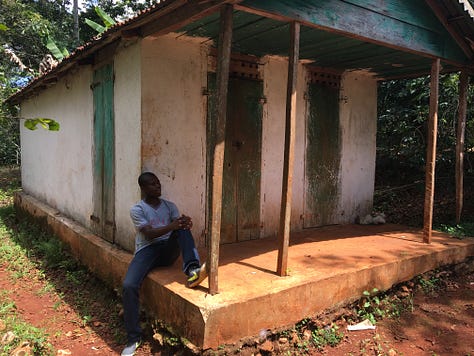
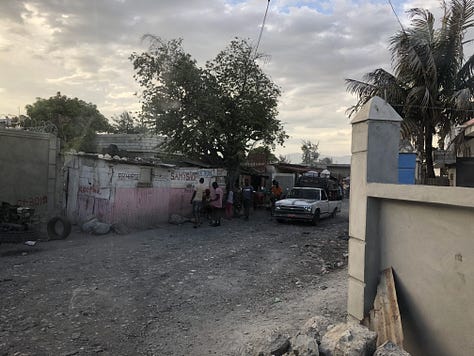
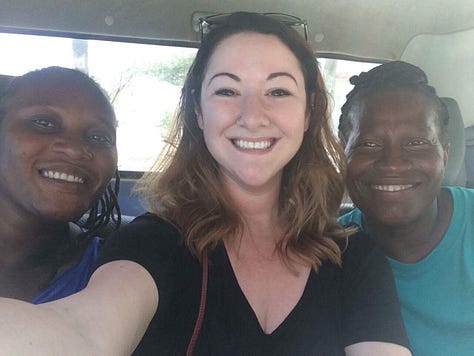
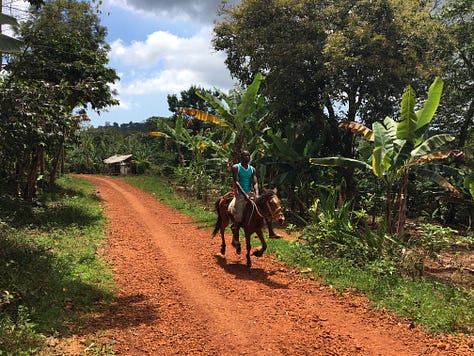
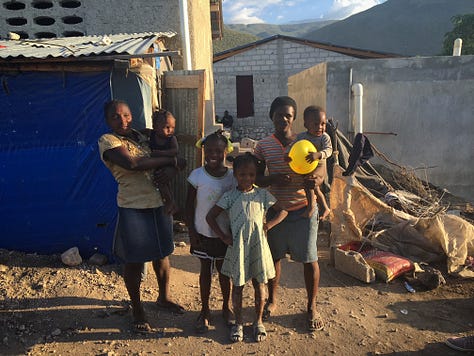

PUBLICATION
We guarantee publication every Monday and Thursday. As we are able, we will publish additional issues throughout the week.

So many lessons can be earned from this Inspirational, heart-breaking, important and heart-warming commentary. Thank you, Megan and Cori for your selfless work and to Martin for covering the story and, as always, for your superb writing skills.